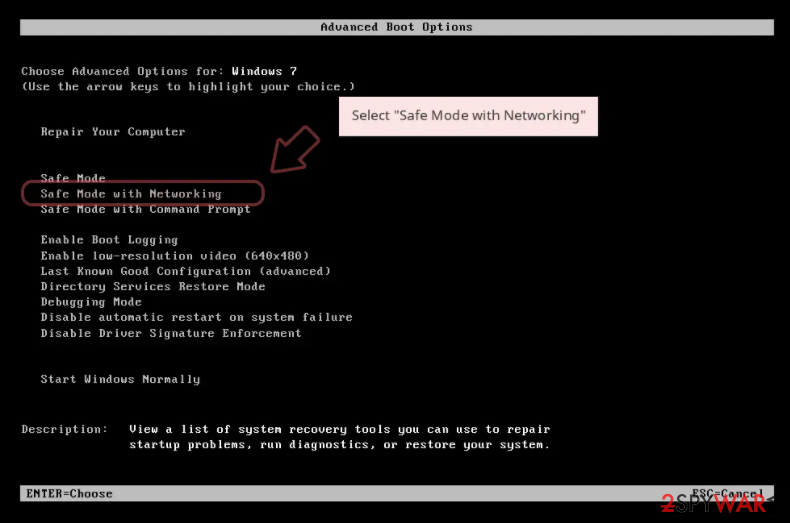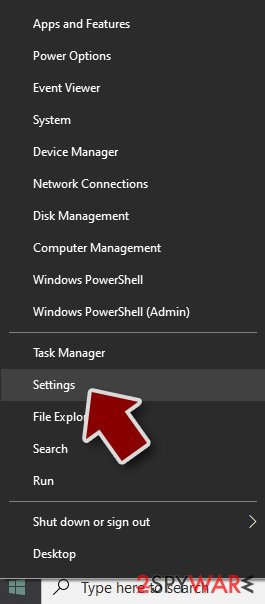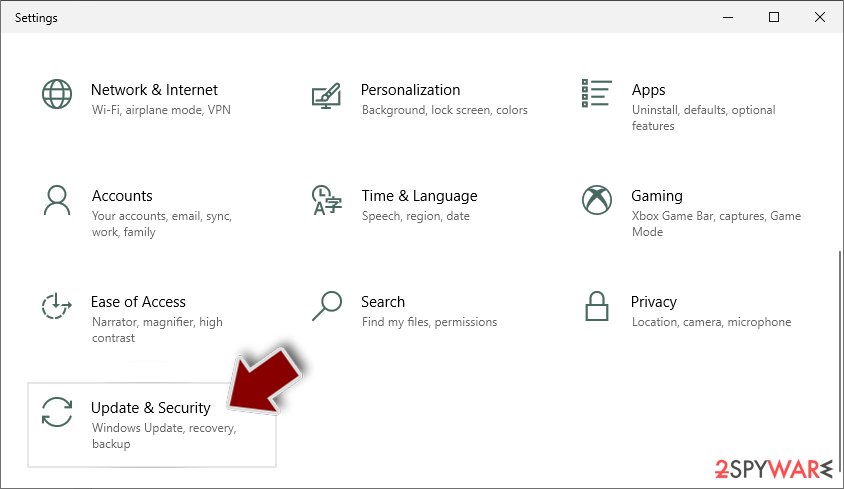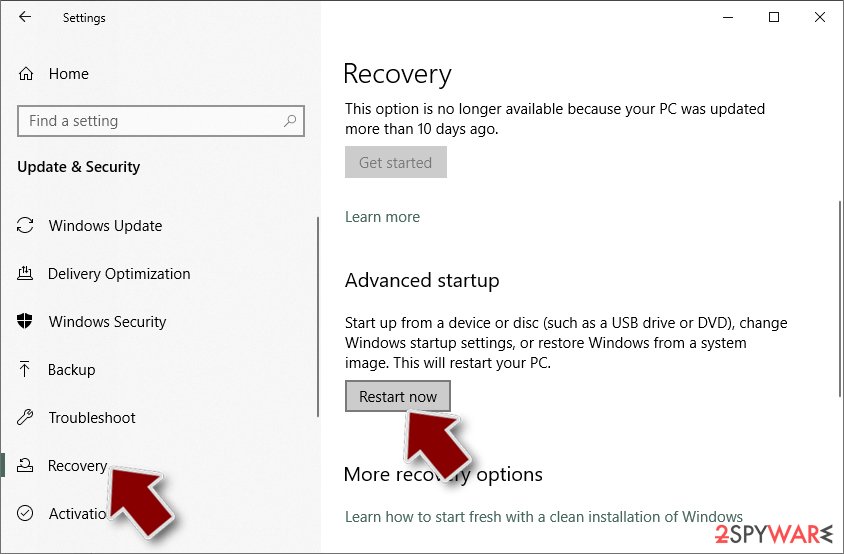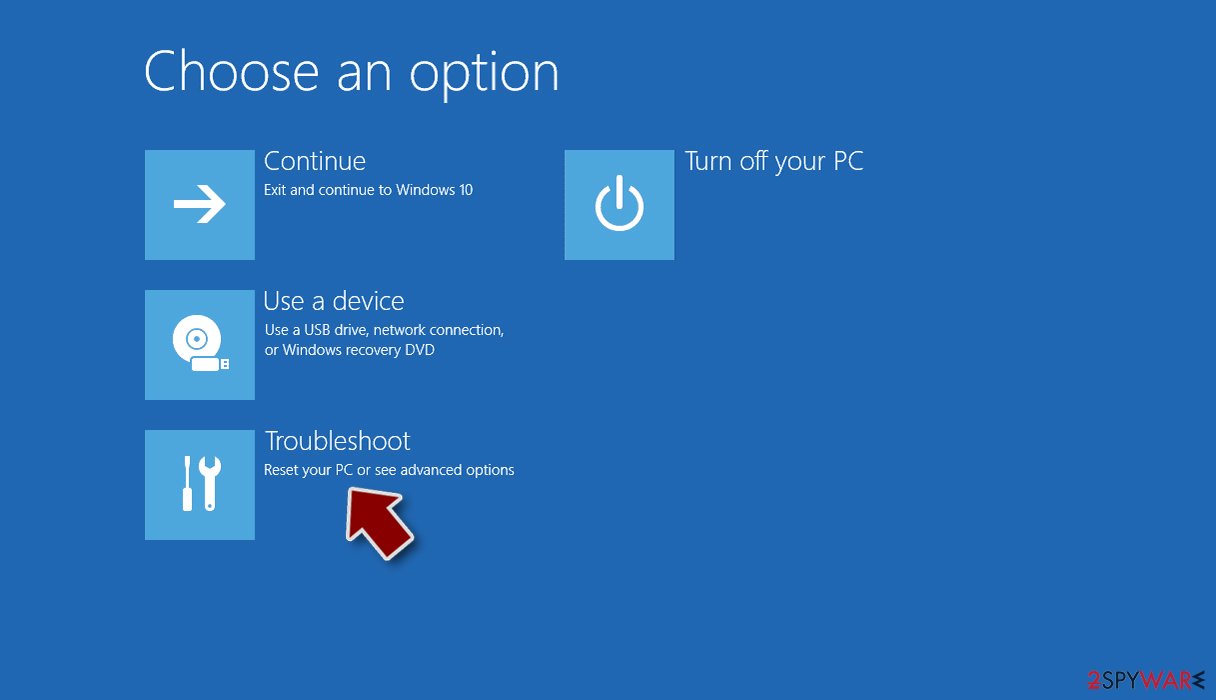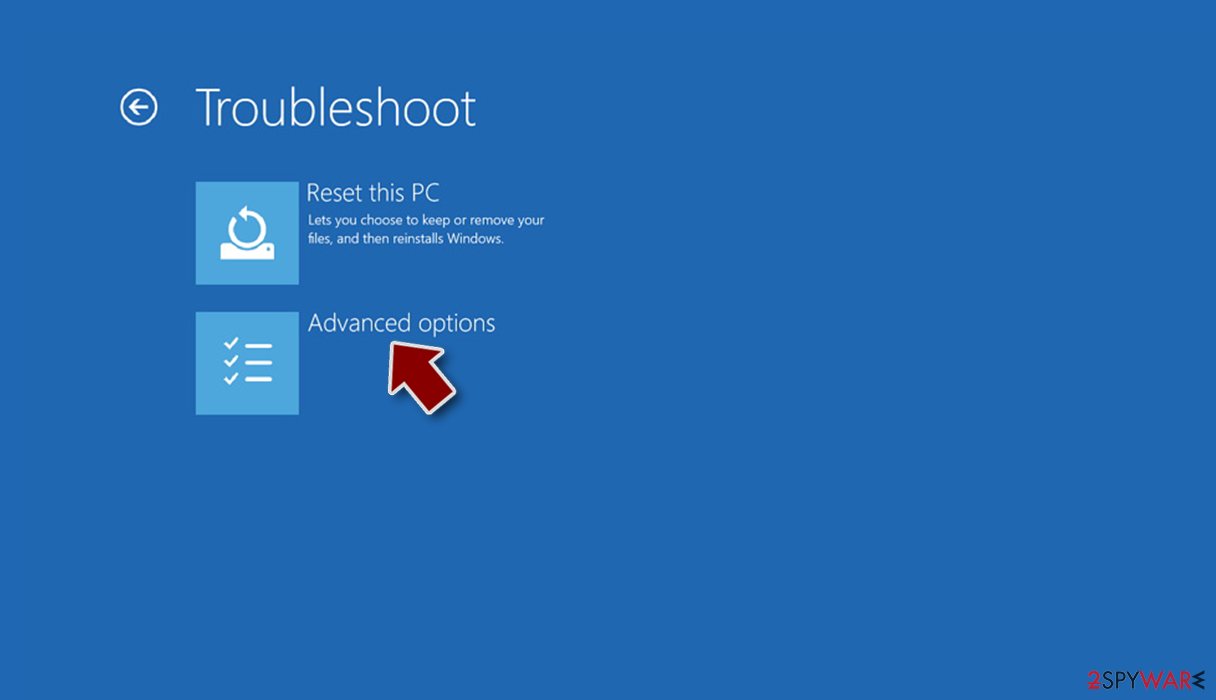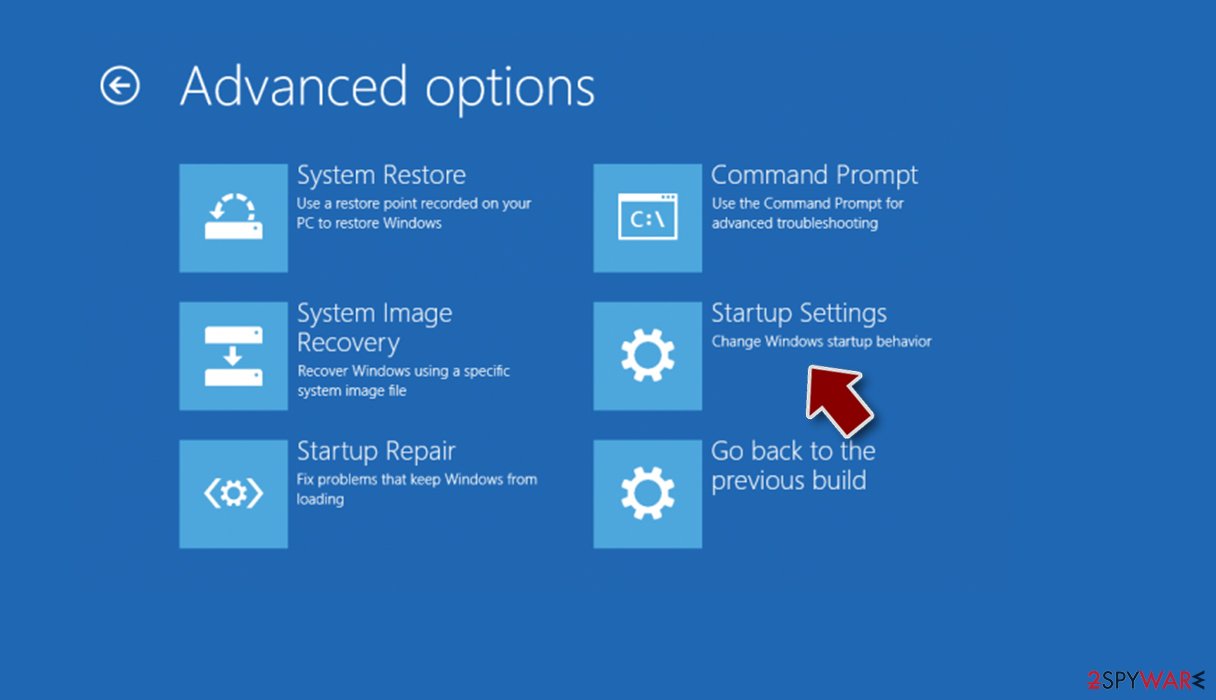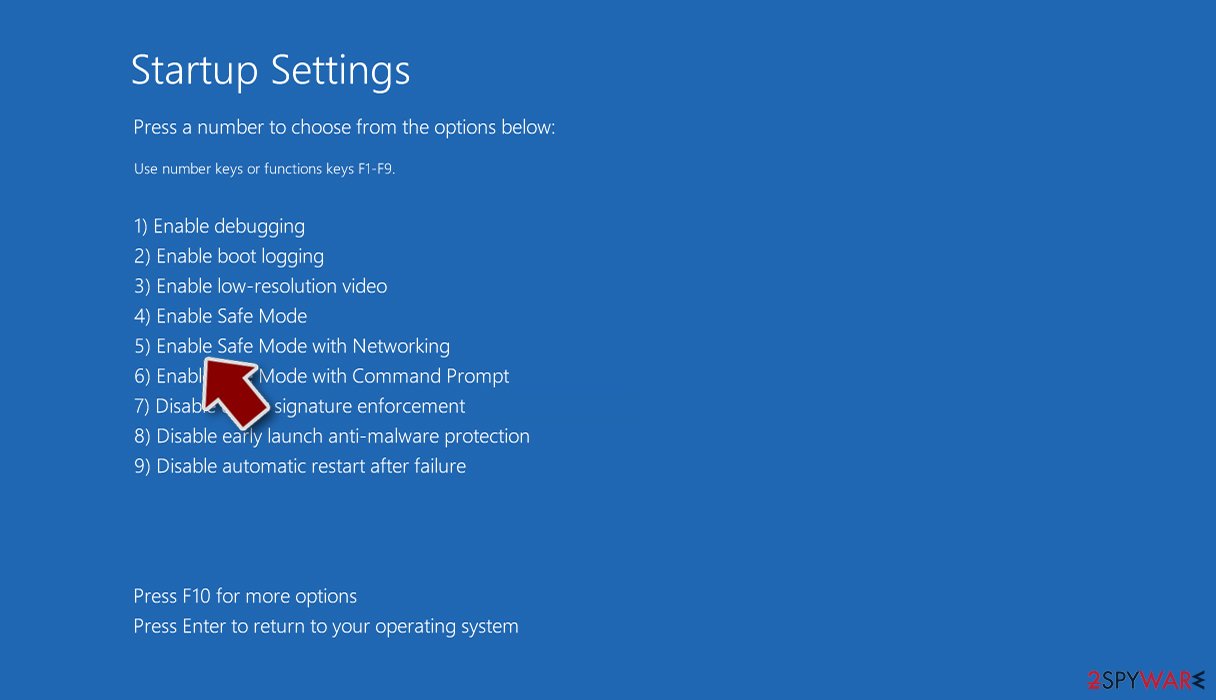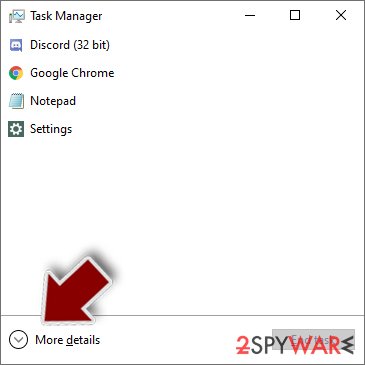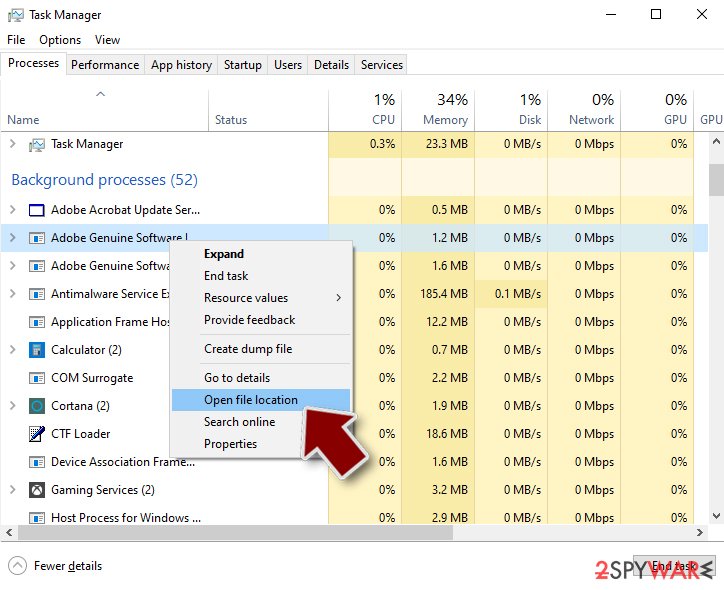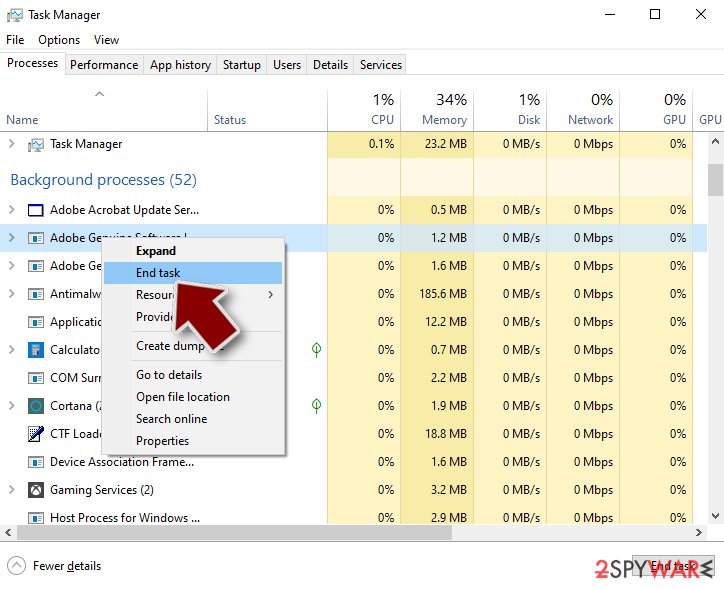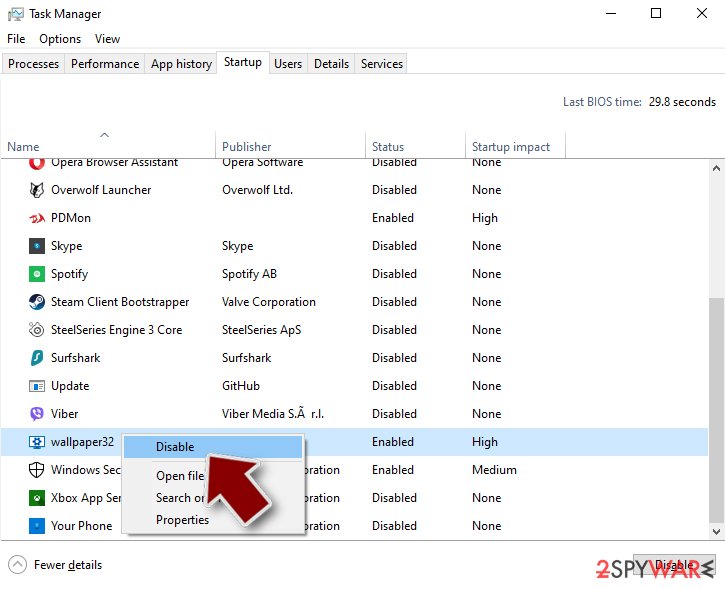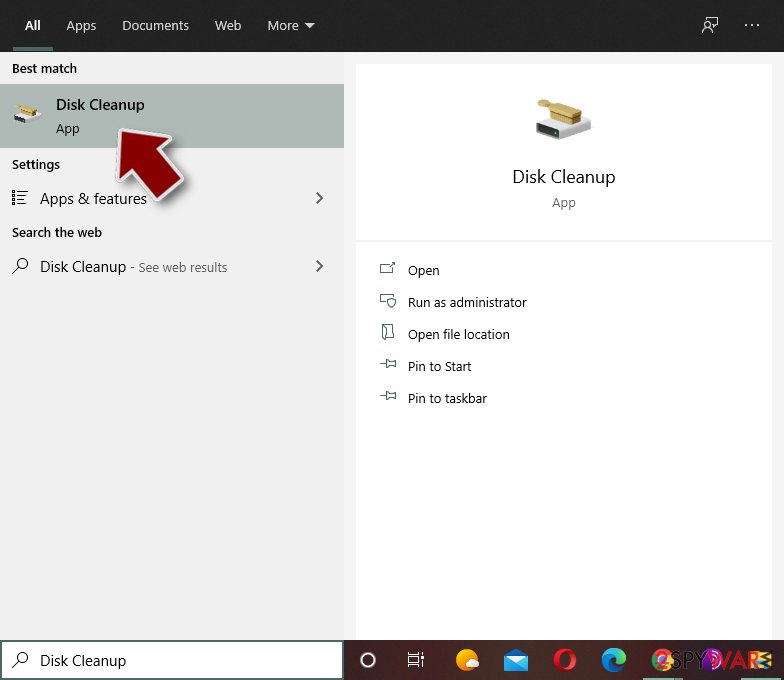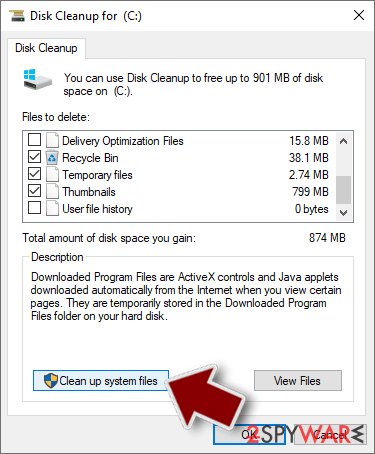Cyber_baba2@aol.com ransomware / virus (Improved Instructions)
Cyber_baba2@aol.com virus Removal Guide
What is Cyber_baba2@aol.com ransomware virus?
Cyber_baba2@aol.com virus – what it is and what it does?
Your computer can be infected with Cyber_baba2@aol.com ransomware virus, which is yet another example of XTBL file extension viruses. It must be noted that this can happen only if you keep your computer unprotected. This crypto-ransomware version can be found under Crypaura virus name as well. The name of this ransomware contains an email address because after this virus drops the payload, it changes victim’s desktop wallpaper with an image displaying a short message:
Hello my friend.
All your data has been crypted
You server has a security problem
To get your data back and protect
Your system write to
cyber_baba2@aol.com
As you can see, the virus suggests the victim to contact them via provided email address to get information about possible decryption ways. The same information can be found in the ransom note, which the virus saves on the desktop – How to decrypt your files.txt. Just like any other XTBL virus, it asks for ransom in exchange for the decryption software. However, in our opinion, victims should remove Cyber_baba2@aol.com ransomware using anti-malware tool like FortectIntego instead of complying with its demands, and try to use this XTBL decryption tool to restore encrypted files. Please note that you should try using decryption tools only after removing the virus from your computer! Sadly, you cannot recover your data from Volume Shadow Copies since this virus deletes them immediately. This way, it seeks to prevent the victim from recovering precious files for free. However, the victim can recover the data for free in case he/she has a backup.
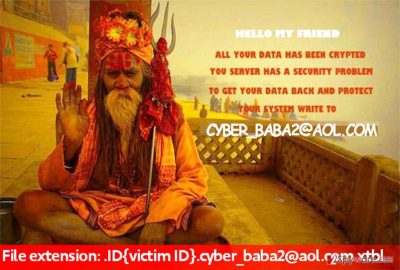
What makes this virus exceptional is that it appends .ID{victim ID}.cyber_baba2@aol.com.xtbl file extension to data, revealing victim’s ID code and the email to contact the cyber criminals. The xtbl extension is the main characteristic of all XTBL ransomware viruses. Typically, they do not provide long ransom notes explaining what happened to the computer – they simply ask the victim to send a message containing victim’s ID to a specified email address.
How to shield your PC from ransomware attack?
Ransomware threats are distributed with the help of Trojan horses, exploit kits, malware-laden advertisements or malicious emails. That is why you have to be extremely cautious while browsing the Internet – you can never know which page might be infected. Even a single click on a rogue ad or link can redirect you to corrupted website or immediately drop malware on the computer system. Our advice is to avoid launching or extracting suspicious .zip or .exe files, and also Word files as well, especially if they ask you to enable Macros feature. In some cases, ransomware can be run by JS files as well. To keep your computer protected, stay away from suspicious websites or email letters filled with attachments. Before clicking on a link or ad, think – doesn’t it look suspicious? Does this offer sound realistic? Or is it just trying to lure me into clicking on it? Additionally, avoid opening email attachments if you do not know, or have any business with the sender of it.
How to remove Cyber_baba2@aol.com ransomware?
If the damage has already been done, you probably wish to remove Cyber_baba2@aol.com virus as soon as possible. Of course, you can take the risk and pay the ransom, but keep in mind that crooks might just steal your money and leave you without money AND files. That is why we recommend you to refuse to pay the ransom and remove this malicious program from your system ASAP. The quickest way to complete Cyber_baba2@aol.com removal is using malware removal software like FortectIntego. To run such program, follow instructions provided below (the virus might attempt to block it from running).
Getting rid of Cyber_baba2@aol.com virus. Follow these steps
Manual removal using Safe Mode
Important! →
Manual removal guide might be too complicated for regular computer users. It requires advanced IT knowledge to be performed correctly (if vital system files are removed or damaged, it might result in full Windows compromise), and it also might take hours to complete. Therefore, we highly advise using the automatic method provided above instead.
Step 1. Access Safe Mode with Networking
Manual malware removal should be best performed in the Safe Mode environment.
Windows 7 / Vista / XP
- Click Start > Shutdown > Restart > OK.
- When your computer becomes active, start pressing F8 button (if that does not work, try F2, F12, Del, etc. – it all depends on your motherboard model) multiple times until you see the Advanced Boot Options window.
- Select Safe Mode with Networking from the list.

Windows 10 / Windows 8
- Right-click on Start button and select Settings.

- Scroll down to pick Update & Security.

- On the left side of the window, pick Recovery.
- Now scroll down to find Advanced Startup section.
- Click Restart now.

- Select Troubleshoot.

- Go to Advanced options.

- Select Startup Settings.

- Press Restart.
- Now press 5 or click 5) Enable Safe Mode with Networking.

Step 2. Shut down suspicious processes
Windows Task Manager is a useful tool that shows all the processes running in the background. If malware is running a process, you need to shut it down:
- Press Ctrl + Shift + Esc on your keyboard to open Windows Task Manager.
- Click on More details.

- Scroll down to Background processes section, and look for anything suspicious.
- Right-click and select Open file location.

- Go back to the process, right-click and pick End Task.

- Delete the contents of the malicious folder.
Step 3. Check program Startup
- Press Ctrl + Shift + Esc on your keyboard to open Windows Task Manager.
- Go to Startup tab.
- Right-click on the suspicious program and pick Disable.

Step 4. Delete virus files
Malware-related files can be found in various places within your computer. Here are instructions that could help you find them:
- Type in Disk Cleanup in Windows search and press Enter.

- Select the drive you want to clean (C: is your main drive by default and is likely to be the one that has malicious files in).
- Scroll through the Files to delete list and select the following:
Temporary Internet Files
Downloads
Recycle Bin
Temporary files - Pick Clean up system files.

- You can also look for other malicious files hidden in the following folders (type these entries in Windows Search and press Enter):
%AppData%
%LocalAppData%
%ProgramData%
%WinDir%
After you are finished, reboot the PC in normal mode.
Remove Cyber_baba2@aol.com using System Restore
-
Step 1: Reboot your computer to Safe Mode with Command Prompt
Windows 7 / Vista / XP- Click Start → Shutdown → Restart → OK.
- When your computer becomes active, start pressing F8 multiple times until you see the Advanced Boot Options window.
-
Select Command Prompt from the list

Windows 10 / Windows 8- Press the Power button at the Windows login screen. Now press and hold Shift, which is on your keyboard, and click Restart..
- Now select Troubleshoot → Advanced options → Startup Settings and finally press Restart.
-
Once your computer becomes active, select Enable Safe Mode with Command Prompt in Startup Settings window.

-
Step 2: Restore your system files and settings
-
Once the Command Prompt window shows up, enter cd restore and click Enter.

-
Now type rstrui.exe and press Enter again..

-
When a new window shows up, click Next and select your restore point that is prior the infiltration of Cyber_baba2@aol.com. After doing that, click Next.


-
Now click Yes to start system restore.

-
Once the Command Prompt window shows up, enter cd restore and click Enter.
Bonus: Recover your data
Guide which is presented above is supposed to help you remove Cyber_baba2@aol.com from your computer. To recover your encrypted files, we recommend using a detailed guide prepared by 2-spyware.com security experts.If your files are encrypted by Cyber_baba2@aol.com, you can use several methods to restore them:
Run Data Recovery Pro
You might want to try this data recovery software to recover your files. Instructions provided below explain how to install and run this program on your computer:
- Download Data Recovery Pro;
- Follow the steps of Data Recovery Setup and install the program on your computer;
- Launch it and scan your computer for files encrypted by Cyber_baba2@aol.com ransomware;
- Restore them.
Use a decryption tool
Although there is no specific decryption tool created for this ransomware yet, we recommend you to keep up with news on this site. You can also try to use Shade decryptor to recover your files.
Finally, you should always think about the protection of crypto-ransomwares. In order to protect your computer from Cyber_baba2@aol.com and other ransomwares, use a reputable anti-spyware, such as FortectIntego, SpyHunter 5Combo Cleaner or Malwarebytes
How to prevent from getting ransomware
Choose a proper web browser and improve your safety with a VPN tool
Online spying has got momentum in recent years and people are getting more and more interested in how to protect their privacy online. One of the basic means to add a layer of security – choose the most private and secure web browser. Although web browsers can't grant full privacy protection and security, some of them are much better at sandboxing, HTTPS upgrading, active content blocking, tracking blocking, phishing protection, and similar privacy-oriented features. However, if you want true anonymity, we suggest you employ a powerful Private Internet Access VPN – it can encrypt all the traffic that comes and goes out of your computer, preventing tracking completely.
Lost your files? Use data recovery software
While some files located on any computer are replaceable or useless, others can be extremely valuable. Family photos, work documents, school projects – these are types of files that we don't want to lose. Unfortunately, there are many ways how unexpected data loss can occur: power cuts, Blue Screen of Death errors, hardware failures, crypto-malware attack, or even accidental deletion.
To ensure that all the files remain intact, you should prepare regular data backups. You can choose cloud-based or physical copies you could restore from later in case of a disaster. If your backups were lost as well or you never bothered to prepare any, Data Recovery Pro can be your only hope to retrieve your invaluable files.
